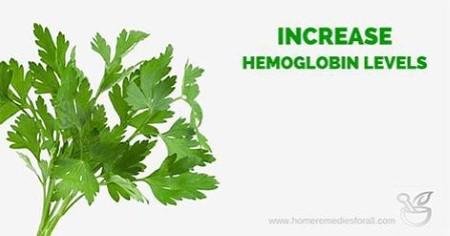If you are generally feeling weak and your blood reports showed low hemoglobin levels, then your doctor would have given you more tests to rule out major problems or would have just told you to eat iron rich food and prescribed folic acid and vitamin tablets.
All these tablets will do their job to bring back your hemoglobin levels to normal, but once you stop the tablets, your hemoglobin levels might begin to drop again. You need to make permanent dietary changes to naturally maintain normal hemoglobin levels.
The best way to increase low hemoglobin levels is to go for a holistic approach towards food, exercise and rest.
3 effective Ways to Increase Hemoglobin Levels Naturally
1. Exercise - When to Do and When to Avoid
In addition to the above basic and more common causes of low hemoglobin, there are more serious underlying causes such as blood loss due to accident or any other reason, kidney problems, bone marrow problems and cancer that may require additional medical care. Even some medicines may reduce hemoglobin levels. Once these serious causes are ruled out then it is pretty simple and straightforward route to increase the dropped hemoglobin.
In most cases it is the poor nutrition, therefore easy to manage.
1. Exercises for Low Hemoglobin Levels
Exercise can be a double edged sword for hemoglobin. If your hemoglobin levels are marginally low then exercise will help you to feel better as more blood will move to the cells which means more oxygen. However, if your hemoglobin levels are too low then you will feel fatigue by exercising. In addition Anemia can cause irregular pulse causing more problems. Go with what your suggests. Rest may be required in some cases.
2. Reduce Iron Deficiency in Your Diet to Increase Low Hemoglobin Levels
Iron deficiency (Anemia) is one of the major causes for drop in hemoglobin levels. Sometimes all food remedies to increase iron may not work as the body may not absorb iron easily. Therefore, it is important to not only eat iron rich foods but also ensure that the iron is absorbed also.
Adding certain herbs such as coriander, spearmint and parsley to your food can improve iron absorption by the body. Calcium rich food such as all milk products should be stopped as they obstructs iron absorption.
Eat food rich in iron such as leafy vegetables ( spinach and fenugreek leaves), beans and lentils, sesame seeds, barley, rice, millet and maize. Even dried fruits such as almonds, peaches and raisins are rich in iron. Meat and fish are very potent iron rich food items.
If you cook tasty recipes from the above foods and herbs, then increasing hemoglobin levels can not be a boring ritual, it can become a new healthy habit.
3. Increase Vitamins and Minerals Intake if Your Hemoglobin Levels are Low
Vitamin C is essential to absorb iron. It is very much possible that your diet is iron rich but your body is not absorbing iron efficiently. Consume more Vitamin C rich foods such as guava, kiwi, papaya, oranges and other citrus fruits and strawberries. Certain vegetables such as broccoli, capsicum, cabbage and tomatoes are also Vitamin C rich foods.
Sometimes your body doesn't produce enough red blood cells indicating folic acid deficiency and deficiency of Vitamin B Complex. Banana, corn, Brussels sprouts, beets, lentils, dried beans, peas, peanuts are all good sources of folic acid.
Eat both vitamin C and folic acid rich foods generously to increase hemoglobin.

